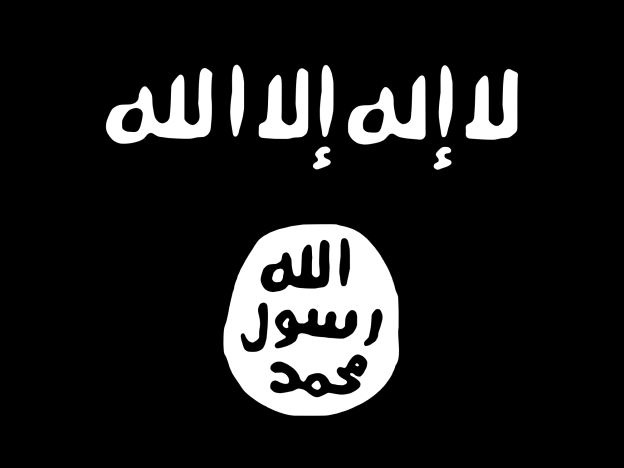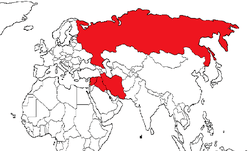 The civil war in Syria is testing Iraq’s fragile society and fledgling democracy, worsening sectarian tensions, pushing Iraq closer to Iran… just nine months after American forces ended their long and costly occupation here. Fearing that Iraq’s insurgents will unite with extremists in Syria to wage a two-front battle for Sunni dominance, Prime Minister Nuri Kamal al-Maliki recently ordered guards at the western border to block adult men…along with thousands of refugees seeking to escape the grinding war next door. Farther north, Iraqi officials have another concern, also related to the fighting across the border. Turkish warplanes have stepped up attacks on the mountain hide-outs of Kurdish insurgents galvanized by the war in Syria, underscoring Iraq’s inability to control its own airspace.
The civil war in Syria is testing Iraq’s fragile society and fledgling democracy, worsening sectarian tensions, pushing Iraq closer to Iran… just nine months after American forces ended their long and costly occupation here. Fearing that Iraq’s insurgents will unite with extremists in Syria to wage a two-front battle for Sunni dominance, Prime Minister Nuri Kamal al-Maliki recently ordered guards at the western border to block adult men…along with thousands of refugees seeking to escape the grinding war next door. Farther north, Iraqi officials have another concern, also related to the fighting across the border. Turkish warplanes have stepped up attacks on the mountain hide-outs of Kurdish insurgents galvanized by the war in Syria, underscoring Iraq’s inability to control its own airspace.
The hardening of the antagonists’ positions in Syria — reverberating across Iraq — was made clear Monday at the United Nations when the new special envoy for Syria, Lakhdar Brahimi, gave a bleak appraisal of the conflict to the Security Council and said he saw no prospect for a breakthrough anytime soon.
The Syrian war’s spillover has called attention to uncomfortable realities for American officials: despite nearly nine years of military engagement, an effort that continues today with a $19 billion weapons sales program, Iraq’s security is uncertain and its alliance with the theocratic government in Tehran is growing. Iraq’s Shiite-dominated leadership is so worried about a victory by Sunni radicals in Syria that it has moved closer to Iran, which shares a similar interest in supporting the Syrian president, Bashar al-Assad.,,,
In response, the United States has tried to secure its interests in Iraq. It has unsuccessfully pressed Iraq to halt flights from Iran that traverse Iraqi airspace to ferry weapons and fighters to the Assad government, although The Associated Press reported that over the weekend a government spokesman said Iraq would begin random searches of Iranian aircraft. While some Congressional leaders have threatened to cut off aid to Iraq if the flights do not stop, the United States is trying to speed up weapons sales to Iraq to secure it as an ally, said Lt. Gen. Robert L. Caslen Jr., the American commander in charge of that effort. As regional security deteriorates, the United States is finding it hard to deliver the weapons — especially antiaircraft systems — quickly enough to satisfy the Iraqis, who in some cases are looking elsewhere, including Russia.
“Although they want a strategic partnership with the United States, they recognize the vulnerability, and they are interested in going with the nation that will be able to provide them, and meet their need, their capabilities gap, as quickly as possible,” said General Caslen, who oversees a Pentagon office here, under the authority of the American Embassy, that brokers weapons sales to Iraq. The United States is providing Iraq with refurbished antiaircraft guns, free of charge, but they will not arrive until June. In the meantime, the Iraqis have collected cold war-era missiles found in a junkyard on an air base north of Baghdad, and they are trying to get them in working order. Iraq is negotiating with Russia to buy air defense systems that could be delivered much more quickly than those bought from the United States.
“Iraq recognizes they don’t control their airspace, and they are very sensitive to that,” General Caslen said. Each time Turkish fighter jets enter Iraq’s airspace to bomb Kurdish targets, he said, Iraqi officials “see it, they know it and they resent it.” Iskander Witwit, a former Iraqi Air Force officer and member of Parliament’s security committee, said, “God willing, we will be arming Iraq with weapons to be able to shoot down those planes.”
The American military withdrew at the end of last year after negotiations for an extended troop presence collapsed because the Iraqis would not agree to extend legal immunities to any remaining force. Once the Americans left, Iraq celebrated its sovereignty, even as military officials in both countries fretted about the deficiencies of Iraq’s military and sought ways to work together that would not require a public debate about immunities. Iraq and the United States are negotiating an agreement that could result in the return of small units of American soldiers to Iraq on training missions. At the request of the Iraqi government, according to General Caslen, a unit of Army Special Operations soldiers was recently deployed to Iraq to advise on counterterrorism and help with intelligence.
Excerpts from TIM ARANGO, Syrian War’s Spillover Threatens a Fragile Iraq, NY Times, Sept. 24, 2012


